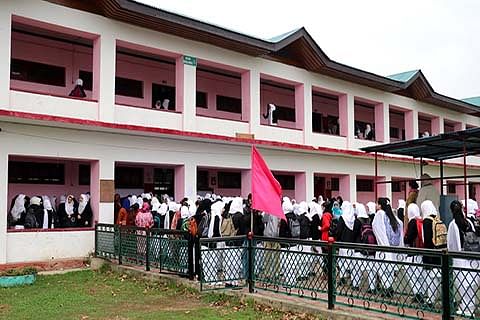The preceding year witnessed devastating effects of Corona virus and all sectors of the economy were affected. Among other sectors, education systems around the world were severely hit. The schools were closed in March—2020 and remained closed throughout the year. This year the new wave began with a surge in late March in COVID-19 pandemic at an alarming speed. The number of cases rise with every passing day and the number of cases reported in last six weeks showed 20 fold increase. Second wave of pandemic was. And still is, like a tsunami as the situation has turned far more serious than one had imagined.
Like 2020, the year 2021 is again marred with tragedy and heartache, pushing education to the wall. The discovery of vaccine raised high hope of normalcy to return in India. But in fact this year created more panic and has probably more in store as it sets new record of fatalities. Schools and other educational institutions were forced to close- imposing lockdown in an attempt to contain the spread of deadly virus.
The educational disruption has again surfaced up with a direct bearing on the proficiency level of students. The children may fall below the minimum proficiency level. Staying indoors may result in health crisis, alongside academic under performance. In fact sitting home has created stress, boredom, laziness and other health issues.
The government shall initiate efforts to mitigate the impact of school closure, address learning loss and adapt education systems, particularly for vulnerable and disadvantaged communities.
The outbreak of COVID-19 has reminded us that change is inevitable. The children faced a tough challenge to go ahead with self-learning and develop the ability of learning independently. In other words children were left with no other option but “learning how to learn” at a time when they are not learning under a constant supervision of a teacher. The parents’ role became more prominent by remaining supportive in meeting out the learning needs of their wards despite all odds. The pandemic has impacted not only children’s ability to learn but also their physical and socio—emotional needs. The holistic development of a child living under the threat of corona virus comes to a standstill.
Though it is an exceptional situation in the history of education, COVID—19 has created many opportunities to come out of class room teaching model to a new era of digital model. During lock down the teachers everywhere are developing creative solutions to somehow continue teaching–learning process. The online teaching proved a better alternative for teachers and students to continue their educational activities. The teachers assign work to students via internet, deliver lectures through live video conferencing, using different Apps like Zoom, Google meet, You tube And Skype etc. There are WhatsApp groups of teachers, parents and students for effective communication, through which they are always in touch to share their difficulties.
In Jammu and Kashmir with varied topography, digital learning is not so simple. All the students are not equipped with high speed internet and digital gadgets to avail the facility of on line learning. Education department could not make it an opportune time to upgrade and update the available infrastructure. Few years back smart class rooms and ICT labs were established in selected schools of every district. The irony is that majority of these labs are non-functional for one or the other reason and are gathering dust. These Labs have more relevance in these tough times and the department should have risen to the occasion to make them fully functional. The priority should be to utilize digital technology to create an advantageous position for millions of students. It is need of the hour for educational institutions to strengthen their Information and Communication Technology infrastructure to be ready for facing COVID-19 like situations. Even if COVID-19 crisis stretches longer, there is an urgent need to make early efforts on maximum utilization of online platforms. Since unemployment has increased and people struggle for food rather than education of their children. Under such circumstances, the onus is on the government to ensure that all children have sustainable access to learning during pandemic COVID-19.
Mir Mohammad Gulzar is former Principal






